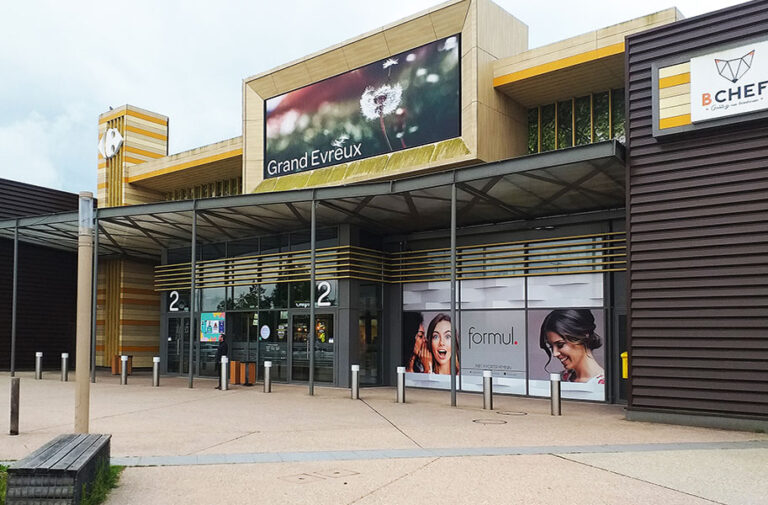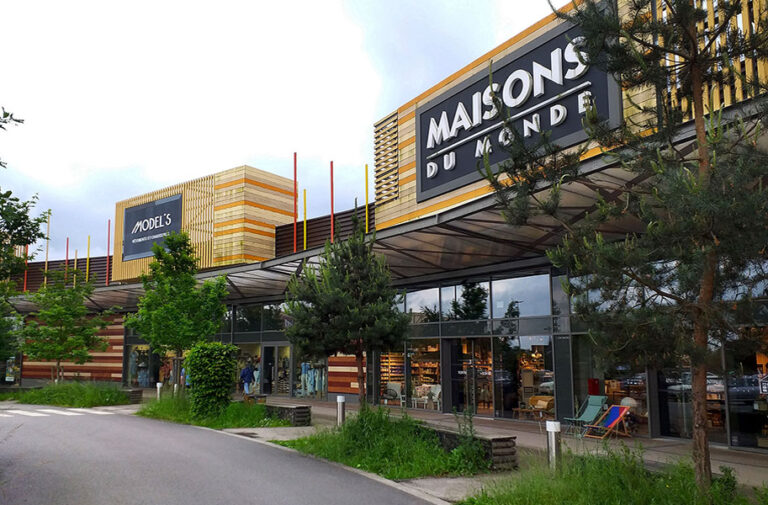Shopping centres are essential focal points in the urban landscape. The main objective is to attract a constant flow of customers. To achieve this, they often opt for a strategic location and focus on a plurality of services. This type of asset attracts both user-operators and investors, with more than 1/3 coming from international sources.
From small neighborhood shops to large stores, mini-markets and restaurants, local businesses offer a variety of assets. For these properties, location is of paramount importance in the evaluation of the walls and the leasehold rights. They arouse keen interest among investors looking for diversification.
The retail park is a group of open-air shops, with a common parking lot giving it a structure similar to that of a small town. Its architecture is constantly evolving, tending towards a modernization that includes the integration of green spaces. They target the same market of users and investors as shopping centers often included in the same portfolio.
Outlet Centers offer unsold items at reduced prices, often at least 30% off. Once located in industrial areas, these centers are increasingly popping up near high-potential tourist sites. This high-yield niche market offers significant growth potential for investors.
Local Shops...!
From small neighborhood shops to large stores, mini-markets or restaurants, shops represent a diversity of assets. For these properties, location is of capital importance in the valuation of the walls and the leasehold, much more than for other types of properties.
The valuation of a ground-floor shop requires an in-depth knowledge of the different types of assets present, as well as a detailed understanding of their immediate environment and their commercial success factors. In the most sought-after locations, rarity characterizes the market.
In this context, ground-floor shops stand out for their resilience, being little exposed to the risk of vacancy, particularly in large cities. Consequently, they arouse keen interest among investors seeking diversification or security for their portfolio.
What are the attributes that characterize the “Shopping Center” asset ?
Geographic location is of paramount importance in the valuation of most real estate properties, but it is particularly decisive for businesses. For example, within the same street in Paris, the layout of a restaurant compared to a brasserie with a terrace can lead to a significant difference in valuation, while this aspect could be negligible for a convenience store or a wine cellar.
The attractiveness of a business on the ground floor of a building depends on many factors, such as the proximity of metro stations or renowned brands, which can influence the influx of potential customers. Each business is unique, and its valuation requires a detailed and in-depth analysis of the commercial premises and the leasehold rights.
What are the market trends ?
In the ground-floor retail market, two distinct dynamics stand out: transfer transactions and rentals. In metropolitan areas, most brands favor long-term rentals of the most sought-after locations. On the other hand, the sale of retail premises remains relatively limited. Available properties are therefore rare, while investor demand remains strong, leading to an upward trend in prices.
Furthermore, brands have a preference for larger areas, of around 300 m², in order to set up local shops, limit competition or reduce charges per square meter. However, such areas are uncommon in large cities, which further accentuates the scarcity of products on the market.
What are investors' expectations ?
Investors are very interested in ground floor retail properties because of their inherent stability. The strategic location of these businesses generally allows for a gradual adjustment of rents thanks to the advantageous provisions of commercial leases during renewals, thus limiting frequent changes of tenants.
This dynamic offers an attractive perspective to investors who are considering a potential revaluation of rents in the long term. However, ground floor properties have a major drawback related to their small size, generating higher management costs. This is why these assets attract cross-sector investors looking for diversification or security, such as SCPIs, real estate companies or insurers.
What are the main criteria for evaluating local businesses ?
Location is the most important factor in estimating a business, being the first element examined during the evaluation. A strategic location, with characteristics conducive to commercial activity, is a fundamental criterion.
• Geographic location: It represents the determining factor in estimating commercial premises.
• Lease clauses: The ability to adjust the rent or not.
• Contextual elements related to commercial activity: Their change can justify the revision of the capped rent
• Purpose of the premises: Catering, all businesses.
• Reputation of neighboring brands: They guarantee high footfall. When renewing the lease of a business on the ground floor of a building, the rent is generally limited by a ceiling.
However, the lessor has the possibility of removing the rent cap if significant changes occur, such as major developments in commerciality factors. If reassessing the rent at the end of the lease is not feasible, then the rate will be adjusted rather than based on the market rental value.
Our asset managers are here to help you!
Cut out unnecessary middlemen...while protecting your assets...!
- See also !







